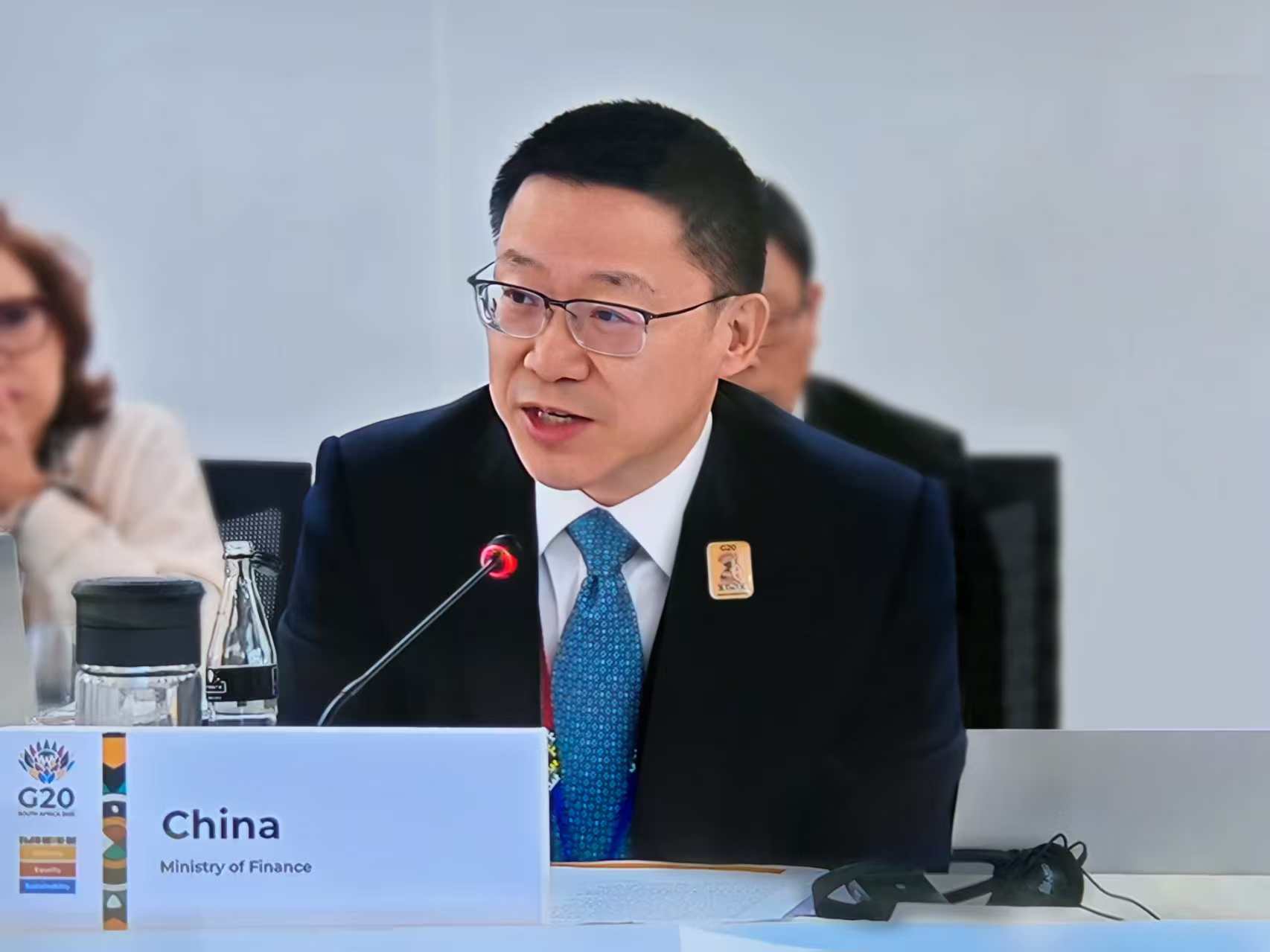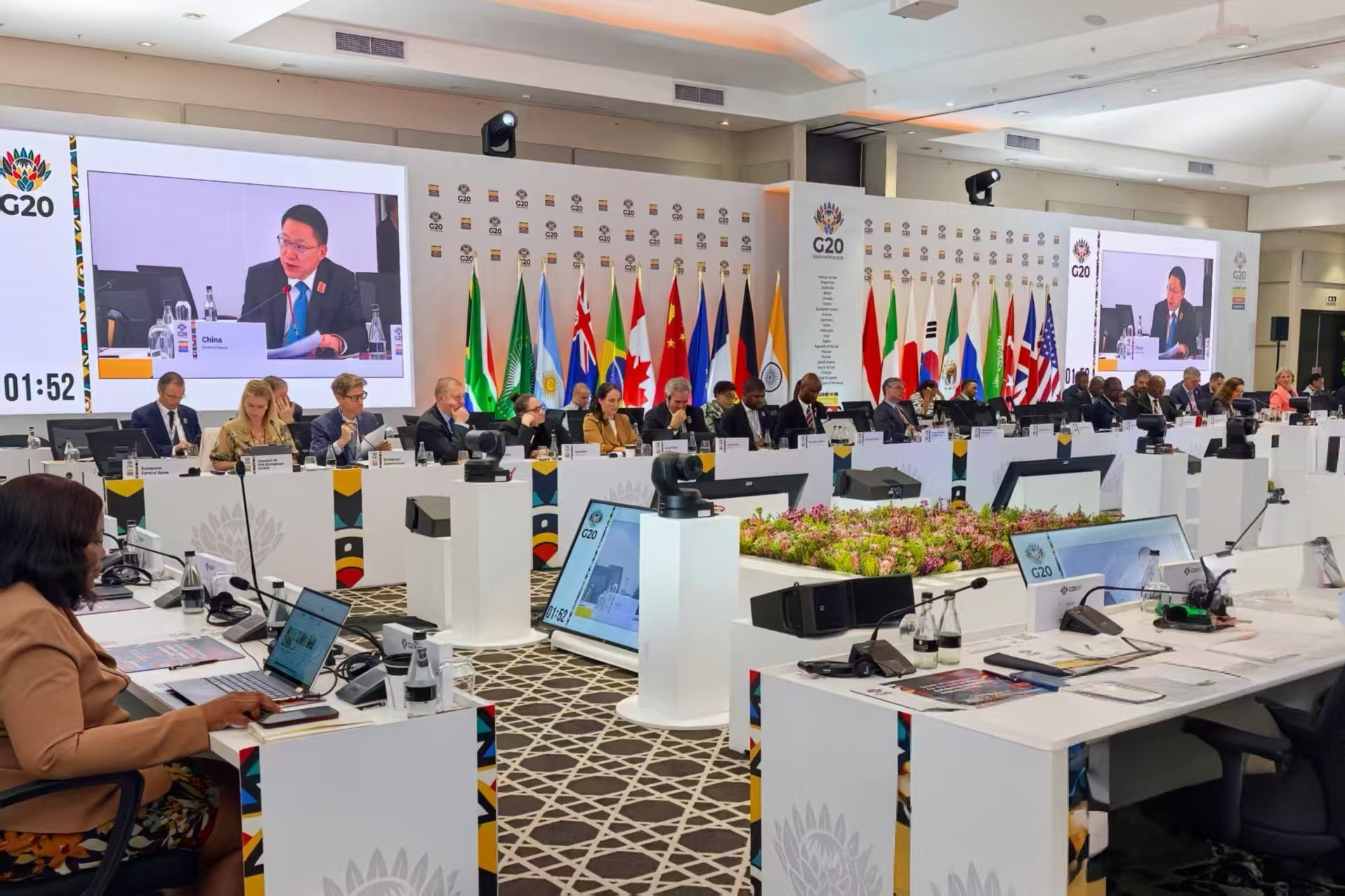

China’s Vice Minister of Finance, Liao Min, attended and spoke at the meeting. He emphasized the need to adhere to economic development principles, uphold multilateralism and free trade, and promote a universally beneficial and inclusive economic globalization to strengthen the stability of the global economic system and foster recovery and growth. Liao called for advancing reforms in multilateral development banks, and progress in the World Bank’s 2025 Shareholding Review. He also urged improving debt financing efficiency, and structural reforms and diversified resource mobilization to address liquidity challenges in vulnerable economies.
Liao highlighted China’s stable and positive economic performance, underscoring its role in supporting global economic stability. He noted that China maintains sound internal and external balances, with domestic consumption’s share of GDP rising steadily and the current account surplus remaining at around 2%—a level widely regarded as balanced. In the second half of 2025, China will implement more proactive fiscal policies and further high-standard opening-up. Additionally, he reaffirmed China’s strong support for African nations and encouraged greater G20 assistance to the continent.
On the sidelines of the meeting, Liao engaged in bilateral discussions with representatives from G20 members and guest countries, including South Africa, Brazil, the U.S., the U.K., France, Germany, Japan, Australia, Argentina, the Republic of Korea, the UAE, Indonesia, the EU, and Sweden. He also met with senior officials from international organizations such as the UN, the World Bank, and the IMF. These exchanges focused on bilateral and multilateral financial cooperation, with Liao elaborating on China’s macroeconomic outlook and reiterating its commitment to multilateralism and global economic governance reform.
DOWNLOAD: